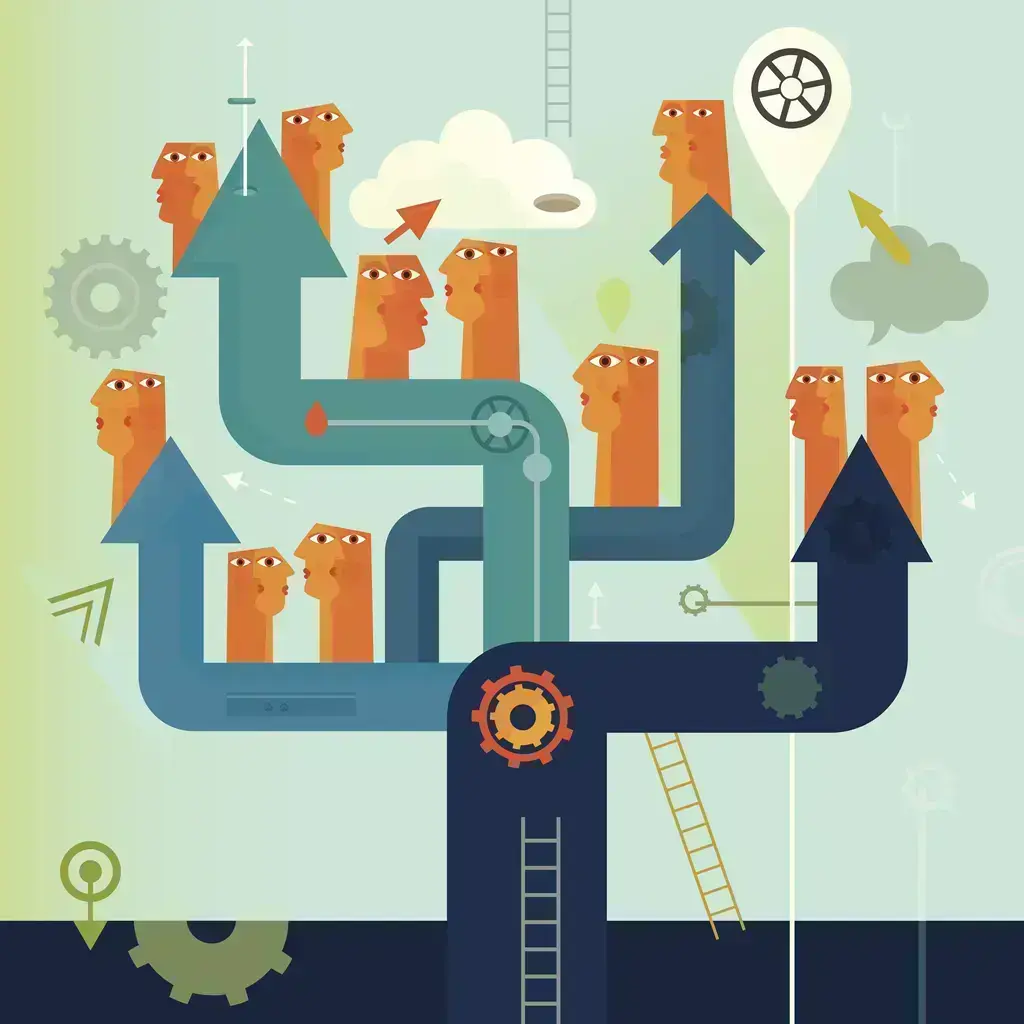Risk of major depression passes down the generations, according to 38 year follow-up of US families. Increased risk is evident even in the third generation, but most notably when both parents and grandparents have had the disorder. On a positive note, treating a mother’s depression to remission improves the prospects for her offspring.
미국 가족의 38년 추적 조사에 따르면 주요 우울증의 위험은 다음 세대로 전해진다. 증가된 위험은 3세대에서도 분명하지만, 가장 두드러지게는 부모와 조부모 모두가 장애가 있을 경우이다. 긍정적인 관점에서는 어머니의 우울증을 관해 되도록 치료하면 자녀의 전망이 개선된다는 것이다.
Early and rigorous treatment of major depressive disorder (MDD) in mothers can improve symptoms of depression in their offspring and so help break the cycle of transmission from generation to generation, Myrna Weissman (Columbia University, New York, USA) told APAAM 2021 in a lecture delivered when accepting the Association’s annual Award for Research.
어머니의 주요 우울 장애(MDD)를 조기에 철저하게 치료하면 자녀의 우울증 증상을 개선할 수 있으므로 대대로 전달되는 사이클을 깨는 데 도움이 될 수 있다고 콜롬비아 대학교(New York, USA) 미르나 바이스만(Myrna Weissman) 교수는 APAAM 2021에서 협회의 연례 연구상(annual Award)을 받을 때 전달된 강의에서 말했다.
Working with her husband, Gerald Klerman (who died in 1992), Professor Weissman developed Interpersonal Psychotherapy (IPT) as an effective, evidence-based tool for the treatment of depression.1
바이스만(Weissman) 교수는 남편 제럴드 클러만(Gerald Klerman, 1992년 사망)과 협력하여 우울증 치료를 위한 효과적이고 근거 기반의 tool로 대인 관계 심리 치료(IPT)를 개발하였다.1
The 2021 Award also acknowledged her major contribution to our understanding of MDD through the study of high-risk families who have now been followed for three generations and over 38 years.
2021 Award는 또한 현재 3대에 걸친 38년 이상 추적되어 온 고위험 가족에 대한 연구를 통해 주요우울 장애 (MDD)에 대한 우리의 이해에 대한 그녀의 주요 공헌을 인정하였다.
MDD risk was highest in children when both their parents and their grandparents had been affected2
주요 우울 장애(MDD) 위험은 부모와 조부모 모두에게 영향을 받은 아이들에게서 가장 높았다2
Risk of MDD triples in children of high-risk families
고위험 가정의 아이들에게 주요 우울장애(MDD) 위험이 3배 증가
In an earlier follow-up that spanned two generations, the risks for MDD, anxiety and substance use disorders among 151 offspring of parents with depression were three times higher than among the children of low-risk families drawn from the same community in New Haven, Connecticut.3
2세대에 걸친 초기 추적 조사에서 우울증이 있는 부모의 151명의 자녀들에서의 MDD, 불안 및 약물 사용 장애의 위험은 코네티컷, 뉴 해븐(New Haven, Connecticut)의 같은 지역 사회에서 온 저위험 가정의 아이들보다 3배 더 높았다.3
At this stage, higher mortality among the offspring of depressed parents was beginning to emerge, and this has now been confirmed at 38 year follow-up. The mortality rate among the offspring of high-risk families is 8.8 per 100, while that in low-risk offspring is 3.8. Deaths from suicide, overdose and accident made a major contribution to the excess mortality, Professor Weissman noted.
이 단계에서 우울한 부모의 자녀에서 더 높은 사망률이 나타나기 시작했으며, 이는 38년 추적 관찰에서 확인되었다. 고위험군 가족의 자녀 사망률은 100명당 8.8명인 반면, 저위험군 자녀의 사망률은 3.8명이다. 바이스만(Weissman) 교수는 자살, 과다 복용 및 사고로 인한 사망이 초과 사망률에 크게 기여를 했다고 말했다.
But two encouraging features emerge from these longitudinal data. The first is that the risk of MDD extending from affected grandparents into a third generation is attenuated if the second-generation parents are not themselves depressed.2 MDD risk was highest in children when both their parents and their grandparents had been affected.2
그러나 이러한 종단 데이터에서 두 가지 고무적인 특징이 나타난다. 첫 번째는 2세대 부모 자신이 우울하지 않은 경우, 영향을 받은 조부모에서 3세대로 확장되는 MDD의 위험이 약화된다는 것이다. MDD 위험은 부모와 조부모가 모두에게 영향을 받은 아이들에게서 가장 높았다.2
Remission of a mother’s depression decreases psychiatric symptoms her children4,5
어머니의 우울증 관해는 자녀의 정신과적 증상을 감소시킨다4,5
Maternal depression is a modifiable risk factor
산모 우울증은 수정가능한 위험 요소이다
Secondly, it seems possible to break the cycle of transmission from one generation to another by effective treatment of affected parents.
둘째, 영향을 받은 부모에 대한 효과적인 치료를 통해 한 세대에서 다른 세대로 전파되는 순환 고리를 끊는 것이 가능해보인다.
The STAR*D-Child sub-study of the larger trial of sequential antidepressant therapy showed that achieving remission of mothers' depression decreases problem behaviors and psychiatric symptoms in their children over the following year.4 Children whose mothers reached remission within the first 3-6 months of treatment showed the greatest benefit.
순차적 항우울제 치료에 대한 대규모 시험에서의 STAR*D-Child 하위 연구는 어머니들의 우울증이 관해가 되면 다음 해에 그들의 아이들의 문제 행동과 정신병적 증상이 감소된다는 것을 보여주었다.4 첫 3~6개월 치료 안에 관해에 이른 어머니들의 아이들이 가장 큰 효과를 보였다.
A mother’s improvement helps the child. And this effect is seen both when remission is achieved by medication and when it is achieved by psychotherapy,5 said Dr Weissman.
어머니의 개선이 아이에게 도움이 된다. 그리고 이 효과는 약물로 관해가 달성되었을 때와 심리 치료로 관해가 되었을 때 모두 나타난다고5 바이스만(Weissman) 박사는 말했다.
Interpersonal Psychotherapy is now widely used across the globe, including rural Uganda, where a cluster-randomized trial showed a group-based approach was highly beneficial in reducing symptoms and dysfunction.6 An IPT manual published by the WHO is available many languages.7
대인 관계 심리 치료는 군집 무작위 시험에서 그룹 기반 접근 방식이 증상과 기능 장애를 감소시키는 데 매우 유익한 것으로 나타났던 지방의 우간다를 포함하여 현재 전 세계적으로 널리 활용되고 있다.6 WHO에서 발행한 IPT 매뉴얼은 다양한 언어로 제공된다.7
Our correspondent’s highlights from the symposium are meant as a fair representation of the scientific content presented. The views and opinions expressed on this page do not necessarily reflect those of Lundbeck.




